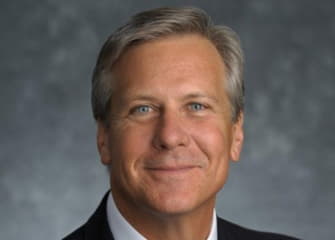
Jim Kornick
New Avison Young report details changes in health care that are creating opportunities for investors
Changes in the health care system – despite bringing many unsettling challenges – are spurring even more investment in medical office buildings, says Avison Young Principal Jim Kornick.
The nation’s aging population is creating increased demand while constrained resources are pushing health care providers to identify the lowest-cost settings, according to a new Avison Young Topic Report, “Evolution of Health Care and its Impact on the Real Estate Landscape in the United States.” These cost pressures, combined with technological advances, are pushing more and more services from in-patient to out-patient settings.
“These changes are presenting unsettling challenges for many, but they are not deterring investors,” says Kornick, who specializes in health care with Avison Young’s capital markets group in Washington, DC. “These changes are actually attracting an increasing number of institutional investors – foreign and domestic – who are competing with traditional healthcare REITs and private investors.”
Kornick noted that the medical office building (MOB) market has a number of factors driving investment:
- The relative high yields in the MOB market compared to other asset classes;
- The stability of cash flow in a class that has seen a mere 220-basis-point variation in occupancy since the Great Recession and which sat at a 92.3 percent occupancy rate at year-end 2017;
- A balance between demand and new supply due to high construction barriers to entry.
“That is all keeping demand and pricing near record highs and cap rates near record lows,” says Kornick.
The new report was written by Tula Voutieros, a senior research analyst in Avison Young’s Fairfield/Westchester office in Connecticut. The report includes contributions from Sean McDonnell, a Principal of Avison Young who is also based in the Fairfield/Westchester office.
In addition to economic pressures on providers, the report notes, more patientsare seeking care closer to where they live and shop. The result: more urgent care centers, ambulatory surgery centers and retail clinics. The MOB, which once housed discrete medical practices, is seeing a radical transformative change that likens it to a hospital without beds.
That means there are many more opportunities for investment, says Kornick.
“These long-term trends are positive for the sector, but investors must stay alert as the evolution of health care continues to impact the real estate that serves it,” says Kornick.
To view and download Avison Young’s Topical Report, “Evolution of Health Care and its Impact on the Real Estate Landscape in the United States,” click here:
ABOUT AVISON YOUNG
Avison Young is the world’s fastest-growing commercial real estate services firm. Headquartered in Toronto, Canada, Avison Young is a collaborative, global firm owned and operated by its principals. Founded in 1978, the company comprises 2,600 real estate professionals in 84 offices, providing value-added, client-centric investment sales, leasing, advisory, management, financing and mortgage placement services to owners and occupiers of office, retail, industrial, multi-family and hospitality properties.


































